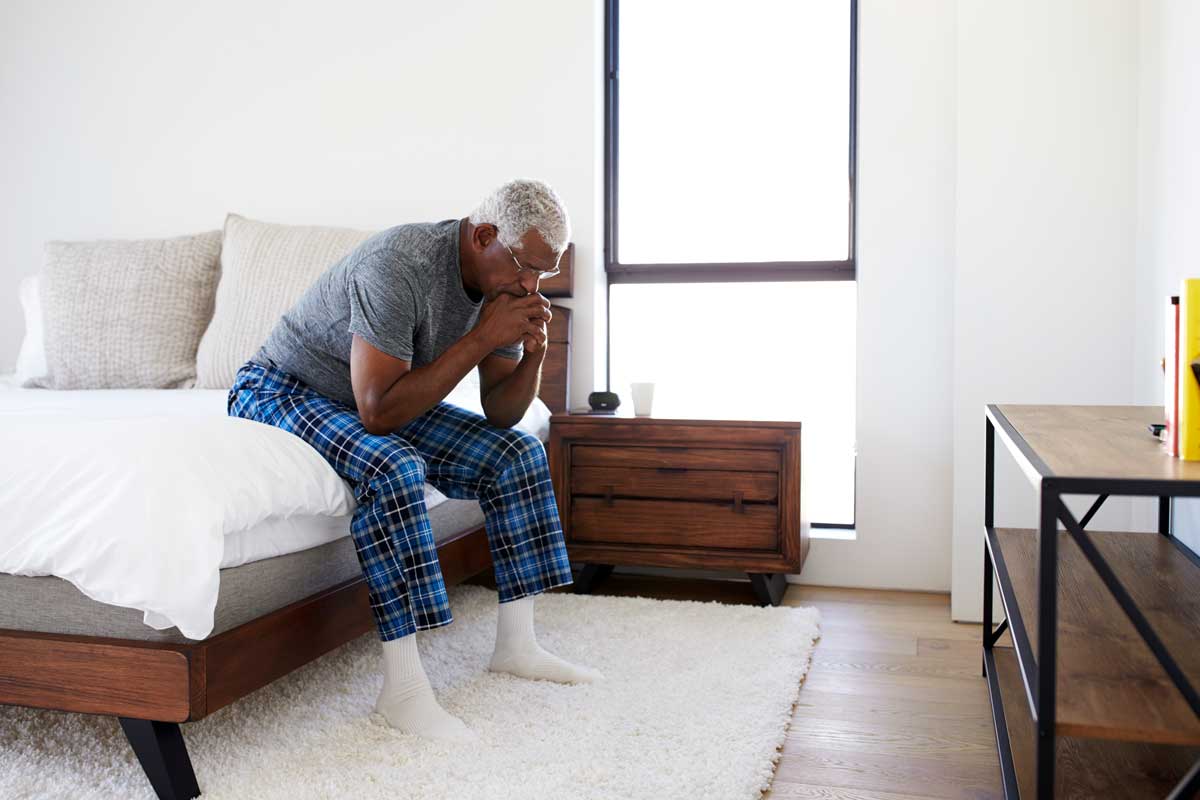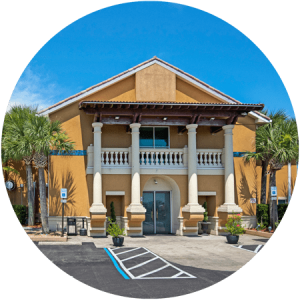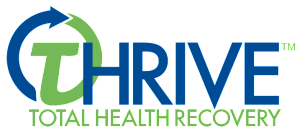Data Points to Sharp Increase in American Overdose Deaths Setting New Records.
The number of Americans dying from drug overdoses rose sharply in the first quarter of the year, putting the country on track for setting a new record for annual overdose deaths. “Provisional Drug Overdose Counts” recently released by the U.S. Centers for Disease Control and Prevention (CDC) reported 19,416 overdose deaths for the January-March 2020 period, 2,734 more than the number recorded during the same period in 2019. On a 12-month basis, the center is reporting a 12.3 percent increase in overdose deaths as of April 2020. With 31 more overdose deaths during the quarter, rural South Dakota recorded the largest percentage increase in overdose deaths at 50 percent, while California and Florida each recorded 1,000 more overdose deaths for the quarter, representing a 20 percent increase.
The availability of synthetic opioids combined with the COVID-19 pandemic is making the problem worse.
While the ever-increasing availability of the dangerously potent synthetic opioid fentanyl is undoubtedly helping drive the increase in overdose deaths, the impacts of the COVID-19 pandemic on people in general and addiction services more specifically is also playing a role. “There’s absolutely no doubt that the distress caused by COVID-19 is shifting people more into having addiction disorders, is worsening those that have it and is blocking people from being able to maintain recovery,” said American Society of Addiction Medicine Dr. Paul Earley. Calling COVID-19 a “perfect storm,” Dr. Earley added that “addiction treatment requires human interaction and hope and we’ve had to stop the interactions associated with addiction treatment.”
Federal officials and addiction specialists were raising the alarm about the pandemic’s role in increasing substance abuse and drug overdoses, as well as its effect on limiting addiction services, before the CDC report came out. “Every indication we have in terms of stress, in terms of surveys about increasing [drug] use during the pandemic, basically everything is pointed in the wrong direction,” Assistant Secretary for the U.S. Department of Health and Human Services Brett Giroir said during a panel discussion examining COVID-19 and addiction. Dr. Mel Pohl, chief medical officer for the Las Vegas Recovery Center said any progress made in addiction care in the past few years, “has taken a huge step back,” as a result of the pandemic. “I think all bets are off as to where this is going and where it’s going to end up, but I don’t think that it’s going to be good,” he concluded.
Indeed, other evidence—both research-oriented and anecdotal—suggests that the pandemic will continue to drive increases in addiction and overdoses.
The University of Baltimore’s Overdose Detection Mapping Application program estimated that fatal and nonfatal overdoses in counties covered by its system increased by almost 18 percent in March, 29 percent in April, and 42 percent in May, when compared with 2019 monthly counts. Clark County, Nevada alone reported a 125 percent increase in fentanyl-related deaths as of August. Even worse, Virginia Commonwealth University Medical Center in Richmond, Virginia had reportedly experienced a 1,000 percent increase in emergency room overdose cases during the first half of the year.
Addiction service providers have pivoted in the wake of the pandemic to offer innovative treatment options, such as teletherapy and remote clinical assessments, but such efforts lack the personal element that can be so important to the success of treatment efforts. Bottom line is that with the pandemic currently ramping up, the scourge of addiction and number of overdoses is undoubtedly going to continue to surge. Addiction specialists, such as those at Gulf Breeze Recovery, are on the front lines of this fight and will continue to do everything in their power to offer recovery services to those struggling with addiction.
If you or someone you care about, has an ongoing history of alcohol or substance use and/or relapse, contact Gulf Breeze Recovery or call: 833.551.2356 to speak to an addiction expert to learn more about their residential program, out-patient program, and intensive out-patient program, and which of these can best fit your individual needs. These programs have helped many people overcome their addiction and embrace their new happy, healthy, substance-free lifestyle.
We help people not just to survive, but to THRIVE!
Sources:
National Center for Health Statistics. “Provisional Drug Overdose Counts.” Updated Nov. 12, 2020. Centers for Disease Control and Prevention.
Mann, Brian. “U.S. Sees Deadly Drug Overdose Spike During Pandemic.” Aug. 13, 2020. NPR.
Weiner, Stacy. “COVID-19 and the opioid crisis: When a pandemic and an epidemic collide.” July 27, 2020. Association of American Medical Colleges.
Data Points to Sharp Increase in American Overdose Deaths Setting New Records.
The number of Americans dying from drug overdoses rose sharply in the first quarter of the year, putting the country on track for setting a new record for annual overdose deaths. “Provisional Drug Overdose Counts” recently released by the U.S. Centers for Disease Control and Prevention (CDC) reported 19,416 overdose deaths for the January-March 2020 period, 2,734 more than the number recorded during the same period in 2019. On a 12-month basis, the center is reporting a 12.3 percent increase in overdose deaths as of April 2020. With 31 more overdose deaths during the quarter, rural South Dakota recorded the largest percentage increase in overdose deaths at 50 percent, while California and Florida each recorded 1,000 more overdose deaths for the quarter, representing a 20 percent increase.
The availability of synthetic opioids combined with the COVID-19 pandemic is making the problem worse.
While the ever-increasing availability of the dangerously potent synthetic opioid fentanyl is undoubtedly helping drive the increase in overdose deaths, the impacts of the COVID-19 pandemic on people in general and addiction services more specifically is also playing a role. “There’s absolutely no doubt that the distress caused by COVID-19 is shifting people more into having addiction disorders, is worsening those that have it and is blocking people from being able to maintain recovery,” said American Society of Addiction Medicine Dr. Paul Earley. Calling COVID-19 a “perfect storm,” Dr. Earley added that “addiction treatment requires human interaction and hope and we’ve had to stop the interactions associated with addiction treatment.”
Federal officials and addiction specialists were raising the alarm about the pandemic’s role in increasing substance abuse and drug overdoses, as well as its effect on limiting addiction services, before the CDC report came out. “Every indication we have in terms of stress, in terms of surveys about increasing [drug] use during the pandemic, basically everything is pointed in the wrong direction,” Assistant Secretary for the U.S. Department of Health and Human Services Brett Giroir said during a panel discussion examining COVID-19 and addiction. Dr. Mel Pohl, chief medical officer for the Las Vegas Recovery Center said any progress made in addiction care in the past few years, “has taken a huge step back,” as a result of the pandemic. “I think all bets are off as to where this is going and where it’s going to end up, but I don’t think that it’s going to be good,” he concluded.
Indeed, other evidence—both research-oriented and anecdotal—suggests that the pandemic will continue to drive increases in addiction and overdoses.
The University of Baltimore’s Overdose Detection Mapping Application program estimated that fatal and nonfatal overdoses in counties covered by its system increased by almost 18 percent in March, 29 percent in April, and 42 percent in May, when compared with 2019 monthly counts. Clark County, Nevada alone reported a 125 percent increase in fentanyl-related deaths as of August. Even worse, Virginia Commonwealth University Medical Center in Richmond, Virginia had reportedly experienced a 1,000 percent increase in emergency room overdose cases during the first half of the year.
Addiction service providers have pivoted in the wake of the pandemic to offer innovative treatment options, such as teletherapy and remote clinical assessments, but such efforts lack the personal element that can be so important to the success of treatment efforts. Bottom line is that with the pandemic currently ramping up, the scourge of addiction and number of overdoses is undoubtedly going to continue to surge. Addiction specialists, such as those at Gulf Breeze Recovery, are on the front lines of this fight and will continue to do everything in their power to offer recovery services to those struggling with addiction.
If you or someone you care about, has an ongoing history of alcohol or substance use and/or relapse, contact Gulf Breeze Recovery or call: 833.551.2356 to speak to an addiction expert to learn more about their residential program, out-patient program, and intensive out-patient program, and which of these can best fit your individual needs. These programs have helped many people overcome their addiction and embrace their new happy, healthy, substance-free lifestyle.
We help people not just to survive, but to THRIVE!
Sources:
National Center for Health Statistics. “Provisional Drug Overdose Counts.” Updated Nov. 12, 2020. Centers for Disease Control and Prevention.
Mann, Brian. “U.S. Sees Deadly Drug Overdose Spike During Pandemic.” Aug. 13, 2020. NPR.
Weiner, Stacy. “COVID-19 and the opioid crisis: When a pandemic and an epidemic collide.” July 27, 2020. Association of American Medical Colleges.
About Gulf Breeze Recovery:
Gulf Breeze Recovery, unlike other treatment centers in Florida, is a non 12 step holistic drug and alcohol rehab that is changing the future of addiction treatment with their THRIVE® (Total Health Recovery) program focused on overcoming chronic relapse.
Gulf Breeze Recovery’s THRIVE® program is a non 12-step approach designed for those who are looking for a drug and alcohol treatment program to produce a different and positive result.
This non-12 step program allows you to drive beyond your addictions and promotes a new outlook on life.
We are licensed by the Florida Department of Children and Families, and our last audit scored 99.7! Also, we are gold certified by the Joint Commission.
Want to read more about Gulf Breeze Recovery’s non 12 step, holistic drug and alcohol rehab? Check out some of our latest posts:
Researchers Identify Role of Key Brain Signaling Protein in Alcohol Use Disorder
January 29, 2021
College Students Who Returned Home Due to Pandemic Drinking Less
January 29, 2021
Overdose Deaths Soar in the Midst of a Pandemic
January 27, 2021
Alcoholism Today in Seniors and Younger Generations
January 20, 2021
End Chronic Relapse and Start a New Life!
At Gulf Breeze Recovery we don’t want you to have just a great recovery, we want you to have a great life!













